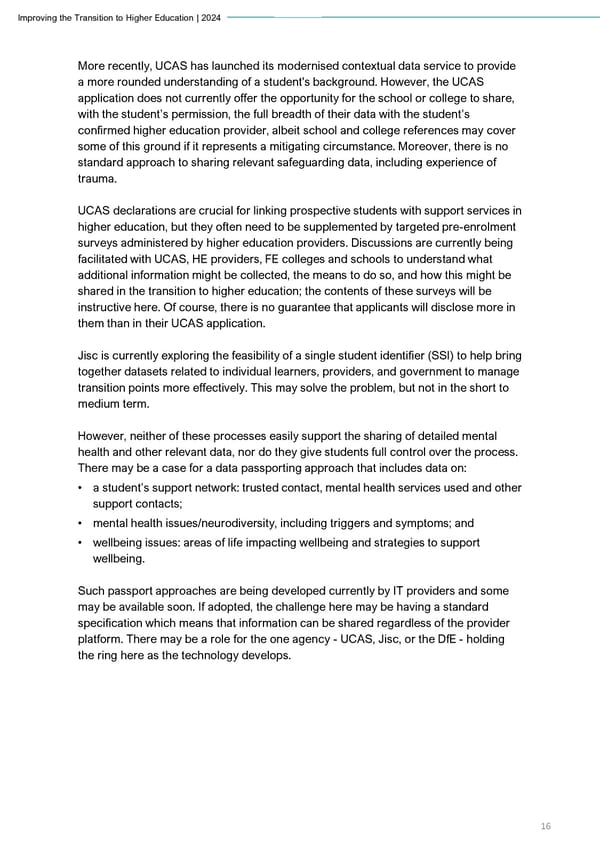Improving the Transition to Higher Education | 2024 Internal More recently, UCAS has launched its modernised contextual data service to provide a more rounded understanding of a student's background. However, the UCAS application does not currently offer the opportunity for the school or college to share, with the student9s permission, the full breadth of their data with the student9s confirmed higher education provider, albeit school and college references may cover some of this ground if it represents a mitigating circumstance. Moreover, there is no standard approach to sharing relevant safeguarding data, including experience of trauma. UCAS declarations are crucial for linking prospective students with support services in higher education, but they often need to be supplemented by targeted pre-enrolment surveys administered by higher education providers. Discussions are currently being facilitated with UCAS, HE providers, FE colleges and schools to understand what additional information might be collected, the means to do so, and how this might be shared in the transition to higher education; the contents of these surveys will be instructive here. Of course, there is no guarantee that applicants will disclose more in them than in their UCAS application. Jisc is currently exploring the feasibility of a single student identifier (SSI) to help bring together datasets related to individual learners, providers, and government to manage transition points more effectively. This may solve the problem, but not in the short to medium term. However, neither of these processes easily support the sharing of detailed mental health and other relevant data, nor do they give students full control over the process. There may be a case for a data passporting approach that includes data on: • a student9s support network: trusted contact, mental health services used and other support contacts; • mental health issues/neurodiversity, including triggers and symptoms; and • wellbeing issues: areas of life impacting wellbeing and strategies to support wellbeing. Such passport approaches are being developed currently by IT providers and some may be available soon. If adopted, the challenge here may be having a standard specification which means that information can be shared regardless of the provider platform. There may be a role for the one agency - UCAS, Jisc, or the DfE - holding the ring here as the technology develops. 16
 Improving the transition to Higher Education Page 15 Page 17
Improving the transition to Higher Education Page 15 Page 17